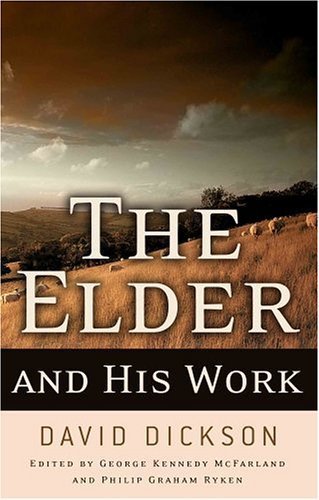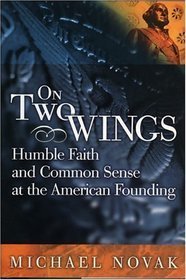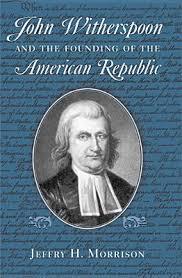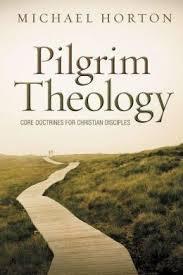Kevin DeYoung's Blog, page 114
February 26, 2013
What Someone Needs to Say
 Albert Mohler has a terrific piece in Christianity Today about the latest tantrum over Tim Tebow. In case you missed it, Tebow backed out of a speaking gig at a prominent Baptist church whose pastor is known for provocative statements and for teaching that homosexual behavior is sinful. We don’t know all the reasons Tebow canceled the engagement, but we do know the pressure to do so was intense. The secular press can be as fundamentalist as any hard core Baptist when it comes to its orthodoxies.
Albert Mohler has a terrific piece in Christianity Today about the latest tantrum over Tim Tebow. In case you missed it, Tebow backed out of a speaking gig at a prominent Baptist church whose pastor is known for provocative statements and for teaching that homosexual behavior is sinful. We don’t know all the reasons Tebow canceled the engagement, but we do know the pressure to do so was intense. The secular press can be as fundamentalist as any hard core Baptist when it comes to its orthodoxies.
And at present, one of the worst heresies is to be in the same zip code with someone who takes a firm stance on homosexuality. From the Giglio Imbroglio to the Tebow Tantrum, or even the Chick-Fil-A controversy before that, we see the new way our world works. “If you espouse views we deem intolerant,” the logic goes, “or collaborate with someone who does, we will not tolerate you or anything you stand for.” It’s the Ivan Drago approach to cultural persuasion: I must break you.
So someone needs to refuse to be broken. Maybe some famous Christian athlete or actor needs to do it. Maybe a famous academic. Maybe a well known musician or humanitarian. Maybe you will be called upon this week to give account for your faith. Give it time and most of us will need to say something. What we must not do is allow the world to dictate what is and what is not a socially acceptable view on sexuality. The world may do that anyway, but we can at least play a little defense by refusing to play the game on their terms.
The next time—and there will be a next time—some famous Christian is pilloried in the press for maybe, possibly, at some point now or in the past holding to the traditional view of marriage, I hope he (or she) will come up to the microphone and say something like this:
Thanks for coming out today. I’ll try to make this brief and get right to the point.
Some people are really upset because they think I believe God does not approve of homosexual behavior. Well, I’d like to clarify: that is what I believe. Like everyone I believe some actions are good and some are not. We all have some form of morality. Thankfully, on a lot of topics most everyone agrees. Almost everybody agrees that murder is wrong and stealing is wrong and telling a bold-faced lie is wrong. But on other topics, we don’t all agree. That’s part of life. That’s part of being human. We have different views on raising children, on religion, on sex before marriage, on marriage itself, and on a hundred other issues.
I’m a Christian. That doesn’t mean I think I’m better than anyone. In fact, I’m a Christian because I know how bad I am and that I need a Savior. But as a Christian I believe the Bible. I believe God is smarter than I am. I believe God tells us about himself, tells us how to be saved, and tells us how to live in this book. That’s actually what most Americans have believed about the Bible throughout our history. I understand that some people in this country don’t believe in God or the Bible. I understand that some people interpret the Bible differently. But I think the Bible is pretty clear that sex is a gift to be experienced in the context of marriage between a man and a woman. I’m challenged by this teaching too. I am tempted to sin in a thousand different ways, including ways that involve my sexuality. But if God tells me what’s right and wrong in the Bible, I have to trust him. If Jesus is really Lord, then he gets to the call the shots.
I don’t expect everyone in a free country to agree that Jesus Christ is Savior and Lord or that the Bible is the inspired word of God. But in a free country I expect that we can hold to different views without automatically resorting to shame and ridicule. I hope that my fans will understand that we can still root for the same team or watch the same movies even if we believe in some different things. I also hope my critics will try to understand why billions of people all around the world believe what I do about God, the Bible, Jesus Christ, faith, and marriage.
So the short answer to your question is: Yes I do still believe God designed sex for marriage between a man and a woman. And yes, I’m still accepting the invitation to speak. I don’t fault you for you doing your job. And I don’t deny your right to disagree with me in the strongest terms. But I guess what I’m trying to say is that I’m not going to let you dictate the terms of this conversation. I’m not going to be intimidated by bad press. And I’m not going to live my whole life trying to prove that I’m something I’m not. It ain’t gonna happen.
I’m a Bible-believing Christian. There, I said it. I’m out of the closet. I’m not bitter. I’m not on a crusade. I just think it’s time to stand up and say enough is enough. I don’t like making people angry. But I can’t live my life to make you happy.
I don’t think I have anything else to say about the subject. If you want to know what I believe and what Christians are like, I’d be happy to take you with me to church anytime. I hope you all have a great day, because that’s what I plan on having now that this is over.
I don’t know exactly what Louie Giglio or Tim Tebow should have said or done. I’m not privy to all the information or behind-the-scenes conversation. This post isn’t about the past. It’s about what is coming in our future. At some point (and many points actually), Christians need to simply take it on the chin, not back down, affirm the truth, put in a good word for Jesus, and keep on smiling.
February 25, 2013
Men and Women of Wisdom Conference in New England
 A conference about the beautiful wisdom of God showing up in our everyday lives. Here’s the advert:
A conference about the beautiful wisdom of God showing up in our everyday lives. Here’s the advert:
South Shore Baptist Church, Hingham, MA
May 3-4, 2013
Register Here–Just $30!
We need biblical wisdom.
We want the gospel to be beautiful in our lives–in our homes, at our jobs, in our neighborhoods, towns and cities. At our universities, in our churches, in our friendships.
We want to love our friends and family well. We want to work well. We want to do life well.
How do we get there?
“Biblical wisdom is more than what you find in a fortune cookie. It is more than an optional add-on for people who want to upgrade their lives from, say, four to seven on a scale of one to ten. This wisdom is life and death: ‘The teaching of the wise is a fountain of life, that one may turn away from the snares of death’ (Proverbs 13:14).
What if we have many advantages but not wisdom? If we have love but not wisdom, we will harm people with the best of intentions. If we have courage but not wisdom, we will blunder boldly. If we have truth but not wisdom, we will make the gospel ugly to our city. If we have technology but not wisdom, we will use the best communications ever invented in history to broadcast stupidity.
Wisdom is the grace of Christ beautifying our daily lives. Paul said that God has lavished his grace upon us in all wisdom and insight (Ephesians 1:7-8). God’s grace is smart grace. The Bible says that in Christ are hidden all the treasures of wisdom and knowledge (Colossians 2:3). The wise way to live is not always obvious or intuitive. It’s hidden. Here’s where it’s hidden: ‘We preach Christ crucified, . . .the wisdom of God’ (1 Corinthians 1:23-24).” ~ Ray Ortlund
Join us as Ray Ortlund, Jani Ortlund, Jared Wilson, Jeramie Rinne, Matt Kruse and Curtis Cook lead us through Scripture in search of the kind of gospel wisdom that is found in Jesus Christ.
Monday Morning Humor
February 22, 2013
Why Pastors Should Read Over Their Heads
 Whenever I talk about reading I try to throw in a lot of disclaimers. Reading is my “thing.” It’s what comes easily to me (more easily than, say, personal evangelism). So I always want to be careful that I don’t impose my passions on everyone else.
Whenever I talk about reading I try to throw in a lot of disclaimers. Reading is my “thing.” It’s what comes easily to me (more easily than, say, personal evangelism). So I always want to be careful that I don’t impose my passions on everyone else.
But even with that caveat, I encourage pastors to regularly read over their heads. This will mean different things to different men, but what I have in mind is the reading of academic writing. Well-meaning people sometimes call me a leading theologian or a scholar, but I’m not anything close to either. I write books, and hopefully my theology is pretty careful and pretty sound, but none of this means I do what real scholars do.
Very, very, very (did I say “very”) few pastors are called to engage in the highest levels of scholarship at the same time as pastoring a congregation. It’s just not possible, at least not for very long. But most pastors should still make it a point to jump into the deep end of the pool and get in over their heads once in awhile.
Let me give you a few reasons why.
Reading scholarly stuff keeps you learning and learning keeps you fresh. Most Christian books are fairly derivative. This isn’t necessarily bad. It just means that if you read nothing but the new releases on your Christian bookstore, you may not be challenged with new insights and new ideas on old topics and old truths.
Reading scholarly stuff keeps you humble. Granted, there is garbage in the academic world as much as there is garbage anywhere. But if you read an excellent scholarly work, like Richard Muller on Post-Reformation Reformed Theology or Scott Manetsch’s new book on Calvin’s Company of Pastors, you’ll realize that you don’t know nearly as much as you thought. This can make you jealous or make you despair. Or it can make you humble and thankful. Even those of us who think we are well read, could be outpaced by an earnest grad student in most areas within a couple weeks.
Reading scholarly stuff keeps you hungry. When I read bad academic work I want to laugh, then cry, then ask for my money back. But when I read excellent work, I get excited to fill in the gaps of my knowledge and make connections I’ve never made before. Good pastors are voraciously curious—about people, about history, about the Bible, and about knowledge. Stay thirsty, my friends.
Reading scholarly stuff keeps you balanced. Again, I’m thinking of the fine academic work, not esoteric gibberish. When you read excellent scholarship you realize two important things: One, some of the sound bites and catch phrases that pass for good thinking and exegetical insights do not deserve to be taken seriously. And two, some of the confident assertions we make deserve to be more nuanced.
Reading scholarly stuff keeps you edified. We live in a place and in a time with an incredible wealth of Christian resources. We have many fine scholars teaching in our schools and seminaries. Most of them genuinely want to serve the church and further the cause of Christ. They have done us a tremendous favor by learning foreign languages, digging around in the desert, or hunkering down in archives, or committing years of their lives to a single person, place, or idea. Let’s take advantage of the best of their labors.
What does this mean for you as a pastor? I can’t say for sure. But consider subscribing to a good journal like JETS or WTJ. Don’t dismiss every book that costs more than you think it’s worth. Plow through a book on your shelf that only makes sense half of the time. Find an area or a person you are really interested in and take a few months to read as much as you can. Try to peruse at least one scholarly monograph each year. And best of all, don’t be afraid to read the old, big books that these men and women are writing about.
February 21, 2013
Book Briefs
 David Dickson, The Elder and His Work (P&R, 2004). Written by a long-time lay elder serving in Scotland in the 19th century, this book is full of practical wisdom and inspiration. In the almost nine years I’ve been at URC, this was one of the top two or three most helpful books our elder board has read together (Biblical Eldership by Strauch also comes to mind). Pastors, take your elders through this book. It’s short, personal, and loaded with godly good sense.
David Dickson, The Elder and His Work (P&R, 2004). Written by a long-time lay elder serving in Scotland in the 19th century, this book is full of practical wisdom and inspiration. In the almost nine years I’ve been at URC, this was one of the top two or three most helpful books our elder board has read together (Biblical Eldership by Strauch also comes to mind). Pastors, take your elders through this book. It’s short, personal, and loaded with godly good sense.
 Michael Novak, On Two Wings: Humble Faith and Common Sense at the American Founding (Encounter Books, 2002). Against secularists who want to make the American founding a thoroughly Enlightenment affair, Novak makes a compelling case (irrefutable actually) that Christian faith played an indispensable role as well. The “two wings,” according to Novak, were plain reason and humble faith. While the founders held to varying degrees of Christian orthodoxy, it is certainly the case that they took virtue and religion very seriously and treated them both as necessary components for a flourishing republic. The downside to this book is a horribly chosen typeset which puts block quotes in a different font and makes the normal font look like it’s in bold.
Michael Novak, On Two Wings: Humble Faith and Common Sense at the American Founding (Encounter Books, 2002). Against secularists who want to make the American founding a thoroughly Enlightenment affair, Novak makes a compelling case (irrefutable actually) that Christian faith played an indispensable role as well. The “two wings,” according to Novak, were plain reason and humble faith. While the founders held to varying degrees of Christian orthodoxy, it is certainly the case that they took virtue and religion very seriously and treated them both as necessary components for a flourishing republic. The downside to this book is a horribly chosen typeset which puts block quotes in a different font and makes the normal font look like it’s in bold.
 Jeffry H. Morrison, John Witherspoon and the Founding of the American Republic (University of Notre Dame Press, 2005). This is a richly detailed scholarly look at Witherspoon’s instrumental role in the founding of this country. Morrison is to be commended for writing an academic work that is interesting, judicious, careful, and not overly long. This is the best monograph available on the political thought of one of our most forgotten founders.
Jeffry H. Morrison, John Witherspoon and the Founding of the American Republic (University of Notre Dame Press, 2005). This is a richly detailed scholarly look at Witherspoon’s instrumental role in the founding of this country. Morrison is to be commended for writing an academic work that is interesting, judicious, careful, and not overly long. This is the best monograph available on the political thought of one of our most forgotten founders.
 L. Gordon Tait, The Piety of John Witherspoon: Pew, Pulpit, and Public Forum (Geneva Press, 2001). Not as impressive as Morrison’s volume, but still learned and helpful, Tait looks beyond the realm of politics to explore Witherspoon’s views of preaching, pastoral ministry, and piety. Tait is sympathetic to Witherspoon, but at times strains to read him through his own mainline lens (e.g., the last chapter tries to connect Witherspoon with Barth, Tillich, Kathleen Norris, and Barbara Brown Taylor). Appendix B on “A List of Books of Character as Collected by Dr. Witherspoon” is a great resource.
L. Gordon Tait, The Piety of John Witherspoon: Pew, Pulpit, and Public Forum (Geneva Press, 2001). Not as impressive as Morrison’s volume, but still learned and helpful, Tait looks beyond the realm of politics to explore Witherspoon’s views of preaching, pastoral ministry, and piety. Tait is sympathetic to Witherspoon, but at times strains to read him through his own mainline lens (e.g., the last chapter tries to connect Witherspoon with Barth, Tillich, Kathleen Norris, and Barbara Brown Taylor). Appendix B on “A List of Books of Character as Collected by Dr. Witherspoon” is a great resource.
 Constantine R. Campbell, Paul and Union with Christ: An Exegetical and Theological Study (Zondervan, 2012). A few years ago I had planned to write a book on union with Christ. At the time, it seemed like a hot topic that wasn’t receiving enough attention. My project morphed into The Hole in Our Holiness instead. I’m glad I didn’t go with my original idea, because in the last few years a number of excellent studies have been published on union with Christ. This latest one by Constantine Campbell, senior lecturer at Moore Theological College in Sydney, is an exhaustive treatment of union with Christ throughout Paul’s writings. Use it as a reference work and get it on your shelf.
Constantine R. Campbell, Paul and Union with Christ: An Exegetical and Theological Study (Zondervan, 2012). A few years ago I had planned to write a book on union with Christ. At the time, it seemed like a hot topic that wasn’t receiving enough attention. My project morphed into The Hole in Our Holiness instead. I’m glad I didn’t go with my original idea, because in the last few years a number of excellent studies have been published on union with Christ. This latest one by Constantine Campbell, senior lecturer at Moore Theological College in Sydney, is an exhaustive treatment of union with Christ throughout Paul’s writings. Use it as a reference work and get it on your shelf.
 Michael Horton, Pilgrim Theology: Core Doctrines for Christian Disciples (Zondervan, 2011). Don’t let the copyright fool you, this is a new book. Well, actually, a re-worked book. This is Horton’s slimmed down version of The Christian Faith. Mike is a brilliant guy, so I’m thankful to see his brilliance get placed in the cookie jar a few shelves lower than before. I hope many seminaries, churches, and aggressive discipleship programs will use this volume for their theological training. It’s more academic than Grudem (which may be a plus or minus in your opinion), but still doable for Christians who are eager to learn.
Michael Horton, Pilgrim Theology: Core Doctrines for Christian Disciples (Zondervan, 2011). Don’t let the copyright fool you, this is a new book. Well, actually, a re-worked book. This is Horton’s slimmed down version of The Christian Faith. Mike is a brilliant guy, so I’m thankful to see his brilliance get placed in the cookie jar a few shelves lower than before. I hope many seminaries, churches, and aggressive discipleship programs will use this volume for their theological training. It’s more academic than Grudem (which may be a plus or minus in your opinion), but still doable for Christians who are eager to learn.
As a bonus this month, let me encourage you to look at a number of little books that may be just what you are looking for.
Rebecca VanDoodewaard, Uprooted: A Guide for Homesick Christians (Christian Focus, 2012). Important topic in our transient world. Awesome last name.
J.V. Fesko, A Christian’s Pocket Guide to Growing in Holiness (Christian Focus, 2012). In 70 short pages, Fesko takes a look at sanctification defined, applied and undermined. The last section is especially helpful.
Guy Waters, A Christian’s Pocket Guide to Being Made Right with God (Christian Focus, 2012). With a book on Federal Vision under his belt and one on the New Perspective, Waters is well-suited to write a well-grounded explanation of justification by faith alone.
Randy Alcorn, Why Pro-Life: Caring for the Unborn and Their Mothers (Hendrickson, 2012). An easy to use resource you could consult or distribute.
John Ensor, Answering the Call: Saving Innocent Lives One Woman at a Time (Hendrickson, 2012). Suggests ways you can be involved in the pro-life movement.
John Ensor and Scott Klusendorf, Stand for Life: A Student’s Guide for Making the Case and Saving Lives (Hendrickson, 2012). Title says it all.
February 20, 2013
If You Expect Fruit Without a Tree, You’re Nuts
We equate love with indifference to sin when the Bible’s logic is exactly the opposite. The cross is the fullest expression of God’s love not because it shows God’s indifference to sin, but because it shows God’s holy hatred toward sin and his willingness to pay for it himself. That’s love.
At the end of Acts 7, we see Stephen praying for the angry mob stoning him to death. He says with his dying breath, “Lord, do not hold this sin against them.” Surely this is love: Stephen wanted them to receive a mercy they did not show him. He had done nothing wrong. Stephen was not deserving of death. Their actions were a profound instance of criminal injustice. And yet in a final gasp, on his knees, he cries out on their behalf, “Lord have mercy.”
How did he do that? How could Stephen love like that? How do we love like that? Pray like that? Forgive like that? Lots of people in the world want to love and forgive. We like those virtues in our culture. But few people are interested in the principles which makes these virtues possible.People want to love like Stephen without bothering to understand or embrace the mile of theology that made his love possible. They don’t want to see the Jesus he saw, or believe in the vindication he knew was coming, or entrust their offense to the God of justice who will one day make all things right.
In the world, they want to be good people. But they don’t realize they have to be God people first. I hope you aren’t going to church just to become a better you or just for the morality your kids might pick up. That’s not how Christianity works. Becoming a Christian is not simply about self-improvement. It’s about a hundred particular truths that teach our minds and touch our hearts–truths about God and Christ and sin and salvation. And yes, later, and only in connection with all the rest, is it about being a good person. When you embrace the biblical worldview of Father, Son and Holy Spirit; creation, fall, redemption, and consummation; redemption accomplished and applied–when your heart thrills to all of that, then you’ll bear fruit. But don’t expect to ever look like Stephen if you grasp for the fruit without the tree.
February 19, 2013
All To Him I Owe
 Do you want to be radical in your devotion to Christ? Do you want your life to count and not be a waste? Do you want to see the nations come to Christ and the world changed for the better?
Do you want to be radical in your devotion to Christ? Do you want your life to count and not be a waste? Do you want to see the nations come to Christ and the world changed for the better?
Well, here’s one practical thing you can do right now on your way to those lofty ambitions: pay down your debt.
There are 610,000,000 credit cards in the United States, and every household with at least one carries an average debt of $16,000. Total U.S. consumer debt is more than $2.5 trillion. Think of all the money Christians have tied up in late fees and financial commitments that can’t be spent on the work of the gospel in the world.
How will you ever give sacrificially to your church if you are swamped in credit card debt? How can you even consider doing missions overseas if you’re swallowed up in student loans? What sort of flexibility will you have to go anywhere and do anything if your house is worth half of what you owe on your mortgage? What will you have to give to support a new church plant in your city or the crisis pregnancy center down the street or the seminary overseas if you have two car payments, two mortgages, and twenty thousand dollars in consumer debt?
I love the emphasis in our day on doing hard things. I love the passion for a big God and big causes. I love the gospel-centered enthusiasm and idealism. But more often than not new dreams don’t come true without old-fashioned virtues like temperance, frugality, and hard work. Heartfelt passion won’t change the world. But passion plus prudence plus perseverance just might.
So if you are serious about carrying your cross and giving your all to Jesus, you should take more seriously paying down all that you owe. I don’t think all debt is wrong. We have a mortgage. We’ve had student loans and car payments too. But for the sake of the gospel we have to keep whacking away at all we owe. If you want to be a radical Christian, try making a budget and living within your means. Think of all the missions money tied up in credit card debt? Think of the workers not being trained, not being hired, and not being sent out because we’ve squandered our American inheritance on easy credit. Think of the risks we haven’t taken because we took all our risks out with interest years ago. He is no fool who works hard to repay what he’s already lost so that he might serve the One he cannot out-give.
Make sure you are giving at least ten percent to your church. Don’t scrimp on that. But after that, introduce austerity until your obligations are under control. The Father and the Son may not expect you to pay them back, but Master Card and Visa do.
February 18, 2013
Monday Morning Humor
February 15, 2013
Ron Citlau’s Good Review of a Bad Book
Jim Brownson teaches at Western Theological Seminary (Holland, Michigan), one of the RCA’s two seminaries. Brownson is widely respected in the denomination, and many look to this General Synod Professor of Theology for guidance on theological matters.
I hope they look elsewhere when it comes to the issue of homosexuality.
Ron Citlau, an RCA pastor in Dyer, Indiana, has reviewed Brownson’s new book Bible, Gender, Sexuality and highlighted several of its weaknesses. Here’s Citalu’s conclusion:
Evangelical churches seeking to walk alongside men and women who identify as gay or lesbian and calling them to a biblical vision of life through Jesus are, Brownson avers, acting destructively. To be sure, some churches are hateful and bigoted, perhaps more than we like to admit. And I’m sure some churches care more for the sin than the sinner. But make no mistake: Scripture calls all who would follow Jesus to come and die to their sin, their lust, and their desire—no matter how innate it might feel.
I know.
I’ve dealt personally with homosexual desire most of my life. When Jesus rescued me, he demanded all of me. And I’m thankful for churches that gave me a biblical vision for my life—including my sexuality. I’m more like Jesus today because of their call for me to die to the deepest desires of my broken humanity.
In Bible, Gender, Sexuality, however, Brownson elevates caricature over substance. He uses a low homosexual-to-healthy-heterosexual change rate to argue God doesn’t call gays and lesbians to repentance and purity. Really? Jesus is the one who said, “For the gate is narrow and the way is hard that leads to life, and those who find it are few” (Matt. 7:14).
Gospel change is hard work that happens in those who actually decide to follow Jesus, which many don’t do precisely because of the high cost. This is true for all sinners, including those fighting homosexual sin. As a pastor, I know many people sitting in my pews are still battling besetting sins after decades of being in church. Should we accommodate for them as well?
Brownson’s words sound compassionate, but they aren’t compassionate enough, since they’re not the gospel. It’s time to reassert what’s always been true: the gospel of Jesus is the hope for sexual sinners. Whether gospel change happens through celibacy, marriage, transformation of innermost desires, or faithful purity in suffering, Jesus is the only way to live out our purposes as sexual beings. Instead of cowering behind statistics, we must declare the gospel and walk with others so they can experience its costly joy. It’s time to more fully live into our calling as the church of Jesus.
Be sure to read the whole review. Ron is a good friend and a good pastor. His brief presentation at our last General Synod were the most courageous, gospel-saturated address I’ve ever heard at Synod.
How Can I Tell If I’m Called to Pastoral Ministry?
 I’ve been asked the question many times, and I’m not sure I agree with it. The question often assumes that pastors, unique among all the vocations of the world, will (and sometimes must) have a powerful, divine, subjective call to ministry that overwhelmingly points them in their God-ordained direction. I don’t see support for that sort of normative experience in Scripture.
I’ve been asked the question many times, and I’m not sure I agree with it. The question often assumes that pastors, unique among all the vocations of the world, will (and sometimes must) have a powerful, divine, subjective call to ministry that overwhelmingly points them in their God-ordained direction. I don’t see support for that sort of normative experience in Scripture.
But I understand what young men are looking for. They understand that pastoral ministry is weighty work, not to be entered into lightly. So naturally they want to know that their inclinations are not self-serving and their direction is not a fool’s errand. They are looking for a few signposts along the way to show them that they’re not obviously on the wrong road. That’s a commendable impulse.
Here are several questions you should ask yourself as you ponder a call to pastoral ministry.
1. Do I meet the qualifications laid out in 1 Timothy 3 and Titus 1? This is the place to start. If your character is not mature, stable, and (in a non-perfectionist way) exemplary, then you are not ready to be a pastor. This does not necessarily mean you are on the wrong path if you don’t yet have victory over certain sins (like pornography), but it means you won’t be ready until you meet the Scriptural standards.
2. Do the Christians who know me best consistently affirm my gifts for ministry? The most important call is the objective call of your church encouraging you to pursue pastoral ministry.
3. Do I like to teach all kinds of people in all kinds of settings? Most people thinking of pastoral ministry are excited to preach. I want to know if they are excited to preach at the Rescue Mission and excited to teach catechism to five year-olds.
4. Do I find myself stirred by good preaching? If a man is called to preach the gospel he should thrill to hear it preached. The content should move him, and he should find himself thinking “Oh, that I could proclaim this good news.”
5. Do I find myself stirred by bad preaching? The last point was obvious. This one is less so, but just as important. I think there ought to be a fire in a man’s bones when he hears the word of God handled badly.
6. Do I enjoy being around people? Some pastors are extroverts; many are not. I’m sort of the middle. I look forward to being with people more than some pastors I know, but not nearly as much as many men I admire. But whatever your personality, you won’t be a good pastor if you don’t like people and recoil from them as much as possible.
7. Do I make friends easily? This is a subjective test (like so many of these questions), but a lack of meaningful friendships is not a good sign. It could be an indication that you are too harsh, too much a loner, or frankly too awkward to be effective in pastoral ministry.
8. Do I like to read? Thankfully there is no GPA or SAT requirement for pastoral ministry. And yet, if we are to be “apt to teach” we must be eager to learn. Preaching grows thin and ministry get stale without time in the Book and the books.
9. Have I thought about doing this for more than a few months? Often when students or adults come to Christ they quickly assume that because they are zealous for the Lord they ought to go seminary and prepare for the ministry. This is usually misguided, sometimes because of pride and sometimes due to misplaced zeal. There’s a reason the Bible insists that church leaders not be recent converts.
10. Do I still want to be a pastor if I never write a book, never speak at a conference, and never have a big church? Our passion must be to feed the flock, not feed our egos.



